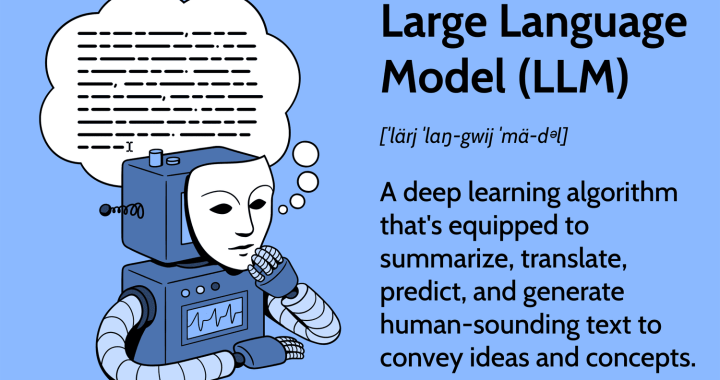(An essay on free will; Happy Independence Day 2017; “One small step for man…”)
In response to The New York Times article “650 Prompts for Narrative and Personal Writing.”
200. “How Much Control Do You Think You Have Over Your Fate?”
The question assumes fate exists. So do I. It also assumes that I have no actual control over my fate: the question being, “How much control do you think you have?” But this is incorrect, I do have control. In the same way that I have as much thought as I have reason, and am fated as much as I am man, I have as much control as I have focus. And I do have focus, so I have control. A more interesting question would be: “How focused are you on achieving your destiny?” With matters that concern the mind, I can only muse my way to an answer. Hopefully, it amuses you in turn.
Focus plays in the question of control. If I have control, it is only with focus. This applies to all things. A pen in my hand and gaze is under my control. I write, I hold, I tap and I click. But the moment I put the pen away, and leave it in the jar with my other pens, it is out of my control. I trust the jar will not lose my pen, in as much as I trust my roommates will not sneak into my room and borrow the pen without asking. But in all other cases, once I am no longer focused on the pen it is subject to the myriad powers that be. To pens, my thoughts are similar. So long as I have an idea squarely in focus, it is under my control. Think groceries, think errands, think names, think career goals. But when the reigns of my consciousness slacken, a rush of other ideas sway my thoughts side to side. All are familiar with the feeling of reading a book, letting a steady stream of words enter one, one at a time, when the sudden flash of a image conjured by the text takes us off the page and into a world of scattered thoughts. Even as an inexperienced reader, I realized these deviations came from a lack of concentration–I would lose control of the text, and only snap back at the bottom of the page I had just turned to, yet not recall a single passage. Now I know that these deviations were derivations well within the power of writing to transport us into unexpected regions of our mind–but tangents aside, it can be said that when in control, i.e. when focused on a text, we flow from one sentence to the other, with complete autonomy: even when not immersed in the author’s imagination, we can still skip lines, stop and ponder, or even reread a sentence, that most glorious aspect of literature. These are all examples of control, stemming from focus. Therefore, focus leads to control.
Apply this concept to learning a new skill, say free-throws in basketball, or learning a new language. Clearly the individual who gains mastery is the one focused on the finer details of the skill, and who grows upward from exercise to objective, repeat. If you have ever learned to ride a bike, ask yourself: how distracted were you when you were learning? I bet you were concentrated on every single joint in your body, from getting on, to wobbling forward, to falling off, to getting back on. Our friends who lost sight of the goal, and stormed off, never learned to ride. We who did not take our eyes off the bike handle, learned to grip it just right.
Grant that we control what we focus on, and call all which lies outside of our focus out of our control. (Imagine all things, then place them into two categories: things in our control, and things out of our control; you’ll have done this correctly when the second list is exponentially larger than the first). Now, go back to the original question and assume fate does in fact exist. Borrowing from its common understanding, call fate the second list, that which is outside of our control. Borrowing from the Greeks, fate took the form of three deities: Clotho, the one who spins the thread of men’s lives; Lachesis, who decides their destiny; and Atropos, who slits the thread when they must die. Even with this cursory treatment of Greek mythology, we see that fate was considered to be outside of our control. We do not choose the material of our lives (that is, our genes, our family, the year we were born, or what impressions come to us during our lifetime). Nor do we choose when we die, not even a suicide case. According to the American Foundation for Suicide Prevention, there are roughly 30 attempts for each suicide. That means you only have a 3% chance of taking your own life, if you tried. Three percent doesn’t sound too choosy. Consider also that “successful” suicides are only the tenth leading cause of deaths in America in a larger list of unwanted deaths: 1 out of every 4 deaths a year are related to heart disease, next cancer, next respiratory disease, then unintentional auto accidents. In all these cases, people pass away unexpected or without choice; for more examples of fated deaths, we need only look around. Returning to a suicide, so bent on controlling his or her fate, merely ask: “Is not your suicide an escape from the outside world? Are you not fed up with others or with the life you’ve been handed? You say you hear voices not your own, don’t you? Choose then, as if you could, before you go: a life worth losing, or a life worth living.” Ten out of ten within reason choose a life worth living. The ones without reason are without the power to choose, anyway. Someone without choice, does not choose death. Someone with choice (*to be, or not to be) always chooses to be. No one chooses to die. We are mortal. Moreover, all deaths are outside of our control. Therefore, all deaths are fated.
But do we control our fate in other ways? Can we pull even a grain of rice out from the boiling pot of water we call fate yet deem so untouchable? The Greeks put it to the deathless ones to decide our destiny–even Zeus was subject to fate. But we are not Greek, and this question of destiny leads us to the heart of the original question: “How much control do you have over your fate?” Control over fate would come in one of two ways: either I bring something that had originally been in my “Out of Control” list into my “Under Control” list, or I can squarely focus upon the item in fate’s hand. The second option seems vague right now, and relates to the more interesting question I put above and shall answer below. Before that, let us tackle the notion of taking what is in fate’s grasps, and holding it in our own hand.
We gave fate three parts, one being the material that makes up our lives. We can imagine being dealt a hand of poker at birth. No one at the table of life is on equal footing before the dealer’s three card flop. But through skill, guile, or more luck, a player is able to play his hand, pass, or outwit his opponents. By the dealer’s fourth card turn, many players have left the table, others climbed the statistics, others fallen down. There is another shift of possibility after the river, the fifth card placed on the table. A player who had but a 10 of spades and a 2 of whatever, might be holding an unbeatable hand during the showdown–a royal straight of spades laid neatly before the dealer. Would not a concentrated mind and a well-chosen poker face affect the course of a player’s life? Whereas a soul worried by risk, or blinded by recklessness might have folded or overestimated what began as a pair of 9 spades? To focus on the game, not just your hand, is to increase your chances to win. The beauty of this example is that there is still room for “skill,” “luck,” fate, and focus to intermingle.
But these are merely card games, you say. True, so let us turn to Simone De Beauvoir’s take on bringing into control what was once out of control: the topic of immanence and transcendence. In The Second Sex, the philosopher begins by giving an account of women as viewed through biology, the psychoanalytic point of view, and then historical materialism (viewing humans as a “historical reality,” as in a society with economic structures, culture, arts, language, projects, goals, a history). Of note, De Beauvoir calls this section of her book “Part 1: Destiny.” One major theme presented here, and shared with Sartre, is the concept of immanence and transcendence. In a nut shell, one’s immanence is the material that makes up your life (en-soi), while your transcendence is your capacity to strike out from the material world a reason for being (pour-soi). De Beauvoir spent the greater part of her work understanding how women got to where they were in 1949, and the forces that corralled their reason for being; she stated unequivocally that, despite her dire strait, woman was not doomed. De Beauvoir wrote of the possibility of woman to overcome her limitations and gain control: “It is not a question of abolishing in women the contingencies and miseries of the human condition, but of giving her the means for transcending them.” There existed within society the chance to form a new human relation with man, thus gaining for herself a higher independence, and thus changing her material reality, her once fate.
Understanding how the west has progressed since the publication of De Beauvoir’s novel, we see hope of a yet brighter future for the women of today. We might be dealt a hand at birth, wrapped in a pink or blue blanket, gifted 23 pairs of chromosomes, and on some arbitrary date of an arbitrary year either live and die, yet we can always transcend the status quo. To whither, plateau, or grow, are all within the scope of possibilities.
Alas, here enters the cynic: “Could it not be the case that women were always destined to be where they were in 1949, and always destined to be where they are in 2017, and any change in between lay outside of their control?” This notion is akin to saying, “Was not the poker player always destined to win, if the deck had been shuffled and stacked at the start of the round, and all the cards dealt, laid down, or burned in a logically predetermined order?” In simpler terms, “Is not everything set into motion, the stars, the moon, and us, who are made of the same elements?” In more abstract terms, the cynic continues: “What one generation calls entropy, another called Chaos; what one called the natural sciences, the other Gaia; yet we mortals were always subject to higher laws, if not by deities directly, then by their will, and if not theirs, then a ruler’s, and if not a ruler’s, then our duty, and if not our duty, then our passions and our fears, and if not those, then our habits and our ticks and our personalities, all of which are the result of an external world–a world which is either benevolent, evil, or apathetic, but never within our control.”
For a long time, I thought like this. I believed all our actions were predetermined, that there was no free will, and that for proof, I needed only to look at the world around me. From cue balls that knock into one another, to bouts of anger in those apt to lose control; to wars that no one wants, to the gaze of a lover that paralyzes us: we were all, I thought, cogs in a material world. But then a series of books and poems led me to reconsider my fatalistic notions. I began looking for answers not outside, but inside myself. As Jalal Rumi said: “I searched for God and found only myself; I searched for myself and found only God.” As Saint-Exupéry wrote: “What is essential is invisible to the eyes.” Whitman begins his Song with an acknowledgment that we are all atoms (the same atoms), but before that, in his very first line, he takes a stand: “I celebrate myself, I sing myself.” We are all human, different in appearance, similar in anatomical structure, varying in taste, and yet equal in our individuality. What you choose to do with your life is yours alone, as much as you choose what shoulder you fall asleep on, or with what foot you start the day. It is my capacity for reason, call it the soul, that is autonomous and in control. Only a flash of concentration is needed to remember who is in control. Start with your breath; a moment ago it seemed so automatic.
Continuing the journey inward, I find Marcus Aurelius’s Meditations particularly illuminating. On the cover it reads, “A little flesh, a little breath, and a reason to rule all–that is myself.” That’s his choice, his reason for being, his pour-soi. Inside, in Book 6, he writes, “Come back now to your sober senses; recall your true self; awake from slumber, and recognize that they were only dreams that troubled you; and as you looked on them, so look now on what meets your waking eyes.” On the surface he orders us. Perhaps he too tries to convince himself. Or at the very least, he merely sketches the thought bubble over his head, one as transitory as its lightning. But in any case, his was an act of reason. He was focused on the page. And publishers for 19-hundred years have painstakingly kept his lines alive. Today it has reached my eyes. And now, I internalize the symbols, and fashion for myself my own meaning: Man and woman have the capacity for reason; it is what we do with our reason that sets us free; act without reason, and you move about a shrinking cage of fewer and fewer possibilities with each passing year; take charge of your life, act with reason, and above all focus, and you will gain more and more opportunities, become no longer subject to the material world, but instead a subject in it, a light. Let us outshine ourselves in the face of our destiny. Let us march forward and transcend hand in hand. All is possible. “One small step for man…”
Do I think I have control over my fate? In so far as I reason over thoughts, yes. Do I actually have control over my fate? In so far as I focus on it, yes.
To the more interesting question: How focused am I in achieving my destiny? My answer: As much as I have focus: A whole damn lot. You ask, What is my destiny?
That question, my friend, awaits us in another essay. For now, you should ask yourself…
How focused are you?
EDIT 2/22/2024:
I would like to thank a reader, Bryan from OK Rehab in the UK, for helping me fix a broken link in this post. He also kindly shares additional statistics and resources pertaining to suicide. Please visit the website, ask for help, and listen to the ones you love. We’re in it together.
Sadoun, Ray. “Suicide Facts and Statistics.” OK Rehab, 9 Jan 2024.
Sincerely, Iván




